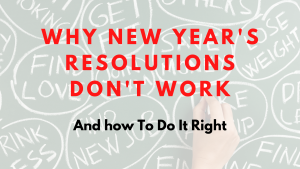

What do the words “health and fitness” mean to you?
How do they make you feel?
For me, these words are personal. They go deep into my core identity.
My father died of a stroke at 55. That pours some extra meaning into the concept of health for me. It’s the big shadow that hovers above my journey on this path.
But it starts way earlier. Because as a teenager and a young man, my father was an athlete.
Athletism and physical practice were integral to my upbringing.
My father pushed my brother and me to become competitive swimmers.
The first movies I have ever seen were Rocky and Bruce Lee movies. These were my male archetypes when I grew up.
I still remember the 1984 Olympic swimming events as a sacred event we were watching and re-watching over and over again (thanks to and an invention called the VCR)
But the sad irony was that as these values given by my father shaped my identity, he himself was neglecting his health. He was preaching the importance of being athletes to his sons, but he never walked his talk.
He was a heavy smoker and a drinker.
He admired athletism but only as an observer. He didn’t exercise, or ran or swim.
Eventually, his lifestyle and deteriorated mental health brought the final strike with no warnings or early wake-up calls.
Today when I look at men in their 40s and 50s, I notice what I call the “Glory Days” syndrome. Yes, that Springsteen’s song.
They get nostalgic about their past days of youth when energy was in abundance, testosterone was overflowing, and the body was low maintenance. Entering the 5th or 6th decade of their lives, they hit the wall of work and family commitments and the hard cold truth of hormonal and metabolic changes.
For many men, this is the perfect storm for adopting an “it all goes downhill from here anyway” attitude. The gateway for a slow but consistent process of deteriorating health.
For many of us men, the behavioral pattern of pushing our health down the priority ladder is all too familiar.
Some men perceive self-care as narcissism. They wear their “man up” and “tough it out” attitude like a badge of honor to justify their self-negligence.
But here is the blind spot for so many men: taking care of yourself is not just about you. One of the main pillars for a meaningful life is the aim outside of you. It is being in service of others.
If you are a father, you feel it in the most direct and obvious way. I became a father late in my life, and the need to be fit when you have to keep up with a 4-year-old becomes very practical. There is no need to search for deep meanings here.
I can also tell you that my need to be here for my daughter as long as possible, and in the best shape I can – becomes visceral.
But maintaining your health and fitness goes beyond the family structure.
It’s the foundation for your quality of life and anything you do as a social creature.
If you think about it, your body and mind (and the two are not separated to me) are the only real assets you’ll ever have.
In his book “12 Rules For Life,” Jordan Peterson phrases his second rule like that:
“Treat yourself like someone you are responsible for helping.”
A powerful statement because of its simplicity.
It also exposes a fundamental flaw in us as men and humans in general: there is no greater critic than the self.
We tend to self-judge as no one else does, and therefore assume we don’t deserve our self-care.
The truth is we should care for ourselves just as much as we care about the ones we love.
Peterson describes the absurd with an example of a person who keeps postponing his well over-due doctor appointments but makes sure to give his dog his medications on time.
Self-care doesn’t mean endlessly chasing what you want. It doesn’t mean being a slave to your desires and pleasures.
The deeper and truer meaning of self-care is understanding the responsibility you have to give yourself what you need rather than what you want.
If you committed yourself to get in shape and lose that stubborn fat around your waist, you know that the process will not be easy.
Going to the gym and acquiring new eating habits after years of eating junk is not always a pleasant process.
But this is the real meaning of committing to self-care: doing what you said you were going to do whether you like it or not.
I am 47 years old, and in eight years, I’m going to be at the age where my father died. I don’t let this fact hang over me like a black cloud and drag me into a morbid state of mind.
I use it, however, as a reminder. I remind myself that I’m not my father, and I am way fitter and healthier than he was my age.
As I think you should too, I also remind myself that genes may load the gun, but your lifestyle choices pull the trigger.
You may be reading all this, and some of it may resonate with you. Maybe you’re at a point in your life where you know very well that the time has come for you to self-care in this way.
Get to know your future self.

Before you go rushing looking for a nutrition plan or a personal trainer, pause for a second and think about your mindset. Your mindset is the foundation for any positive change you want in your life.
Meeting your future self is a great way to start. Imagine yourself ten years from now. Go into the details of where you want to be, in what shape and form. What would you like to be for your loved ones and the broader social circles of your life?
Studies showed that people with a better connection to their future selves have much stronger will power.
I suppose that ten years sounds a bit vague and intangible. Lower it to ten months. What can you do today to be healthier and fitter in ten months?
You can go all the way down and ask yourself what would you do to be better in ten days or even ten minutes.
This is a powerful practice because it helps you connect the present you and your future self.
When you continuously carry this mindset with you, that every choice you make can potentially be an investment in your future self, then you start to realize the profound effect of this practice.
If you start making lifestyle choices with this kind of mindset, you could be in the best shape of your life in ten years. Strong, lean, energized, and sharp.
Can you think about a higher return on investment?
I certainly can’t.
Here’s a first step you can take towards achieving your health and fitness goals – join our growing community of like-minded men:



